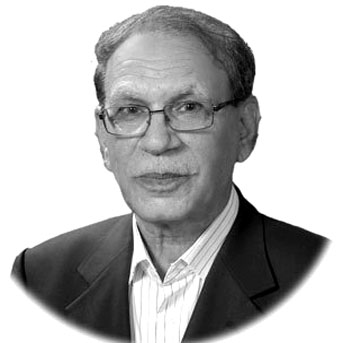Mohammad Jamil
THE debate has been raging in the media with regard to Aurat March on International Women’s Day. Both pro and anti-March elements took extreme positions – the former raised slogan of ‘Mera Jism Meri Marzi’, whereas anti-march elements are not willing to accept the constitutional right to assemble. However, freedom of expression in Pakistan is the most abused freedom, as some media groups are not inclined to accept the provisions with regard to the limits imposed in the Constitution. Under Article 19 of the Constitution of Pakistan, 1973, “Every citizen shall have the right to freedom of speech, freedom of expression and freedom of the Press, subject to any ‘reasonable restriction’, imposed by law in interest of the glory of Islam or integrity, security or defence of Pakistan or any part thereof, friendly relations with foreign states, public order, or in relation to contempt of court or incitement to offence.
At this point in time, when Pakistan is facing multifaceted problems the nation should stand united, unconscionable elements are trying to divide the nation in one way or another. They must give a penetrating look to their act, as the causes they presently are championing fervently and the fracas they are waging so stridently enthuse no one. A petition was filed in Islamabad High Court (ISB) to ban the march, and single bench of ISB comprising Chief Justice Athar Minallah dismissed the petition by terming it non-maintainable. ISB in its verdict stated: “The petitioners and citizens are expected to take this as an opportunity to introspect and demonstrably show outrage against the practices, which are flagrantly offensive to the injunctions of Islam e.g. honour killings, rape, practices such as Wani, Swara, Karokari, etc.” However, the upholders of women rights should not cross the limits and raise provocative and obnoxious slogans, as fundamental rights have limits.
Anyhow, one should understand the background of International Women’s Day, which had different connotations and nothing to do with the women lib movement. On 8th March 1857, women workers from clothing and textile factories staged a protest in New York City against poor working conditions and low wages. The protestors were attacked and dispersed by police. In 1908, 15000 women marched through New York City demanding shorter hours, better wages and voting rights. It was after the World War-II with the establishment of United Nations, women’s rights were recognized at international level. This day (8th March) symbolizes achievements as a result of the struggle waged by women over centuries to realize their social and economic rights. In Pakistan, the obstacles to women’s equal participation in governance are deeply embedded in South Asian culture due to patriarchal nature of society.
This trend, however, is being reversed as more and more educated, talented and motivated women are entering into the field. In 2002, reserved seats for women in national assembly, provincial assemblies and senate were increased, and today women have 60 seats in the National Assembly instead of 20 in the past. In addition to their representation in assemblies and senate, they have representation right up to Union Councils’ level. There is no denying the fact that a woman is an indispensable and basic unit that ensures continuation of human race, and also guarantees its survival. Article 25 of the 1973 Constitution, which was exhaustively debated and unanimously passed by democratically and directly-elected legislature of Pakistan reads: “All citizens are equal before the law, and are entitled to equal protection by the law. And there shall be no discrimination on the basis of gender alone”.
The fact remains that under the cover of karo-kari, men kill innocent women to settle old vendettas, to acquire land, to secure money to pay off debts, to be freed from the obligation of paying back debts, to get rid of an unwanted woman and to have a second wife. However, women were protected through the Women Protection Bill 2006. In 2010, a bill was passed namely Protection against Harassment at the workplace to provide protection to women. In January 2012, the National Assembly unanimously passed an important legislation to ensure further empowerment of women with most of the male and female parliamentarians contributing to the legislation to make it meaningful and effective. In Islam, importance of women can be understood from the example of Hazrat Khadija who was herself a trader and the Holy Prophet (SAW) looked after her business.
She was the first lady to embrace Islam on the first revelation on the Holy Prophet (SAW). Historical evidence suggests that during ‘ghazawats’ women used to look after the wounded. Nevertheless, before advent of Islam, the women had no social or economic rights; and no share in family’s property. It was in fact Islam that gave them their rightful share in the property also. Unfortunately, some obscurantist elements interpret Islam to deny them their rights. It has to be said that empowerment of women is directly linked to the greater economic role, which is dependent on increased access to education and skill development. The fact remains that no society can be considered civilized if women are deprived of their rights, and no nation can progress if half of its working population is denied the opportunity to take part in its productive process on the basis of gender.
—The writer is a senior journalist based in Lahore.










